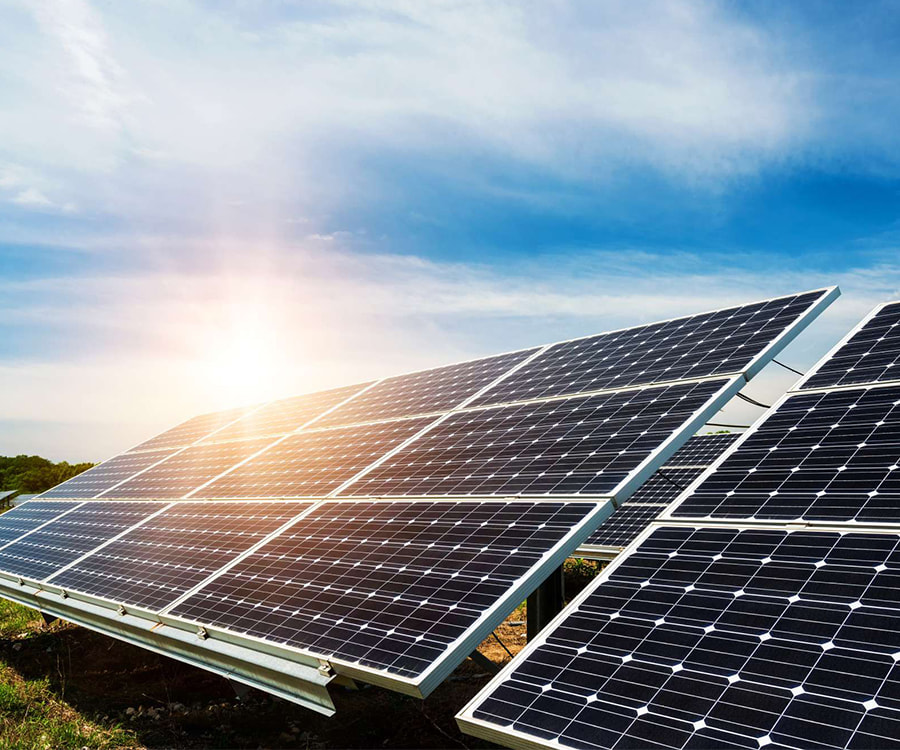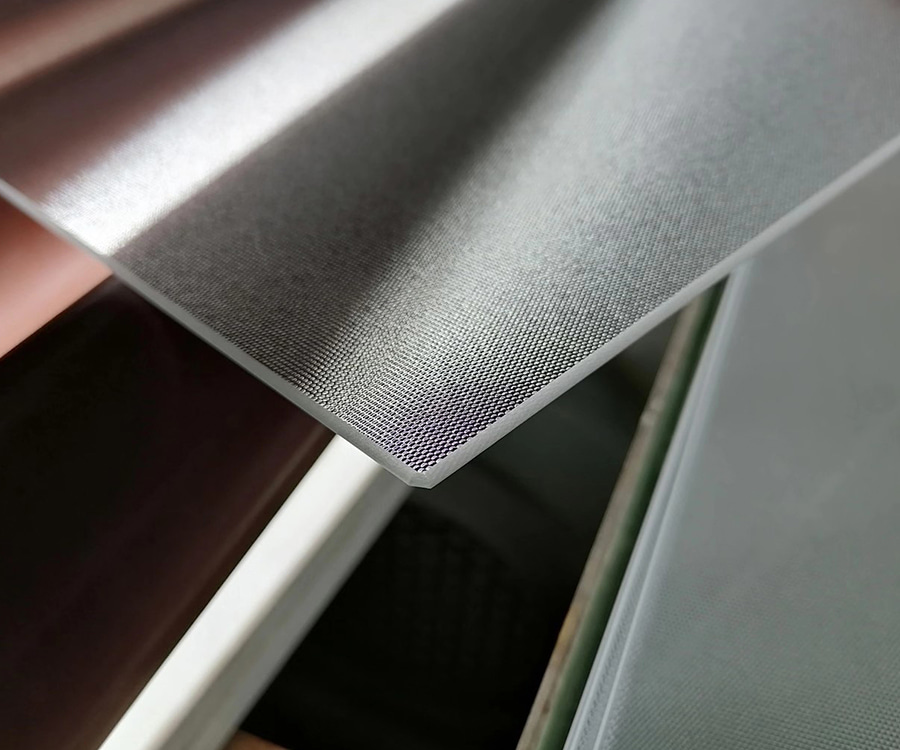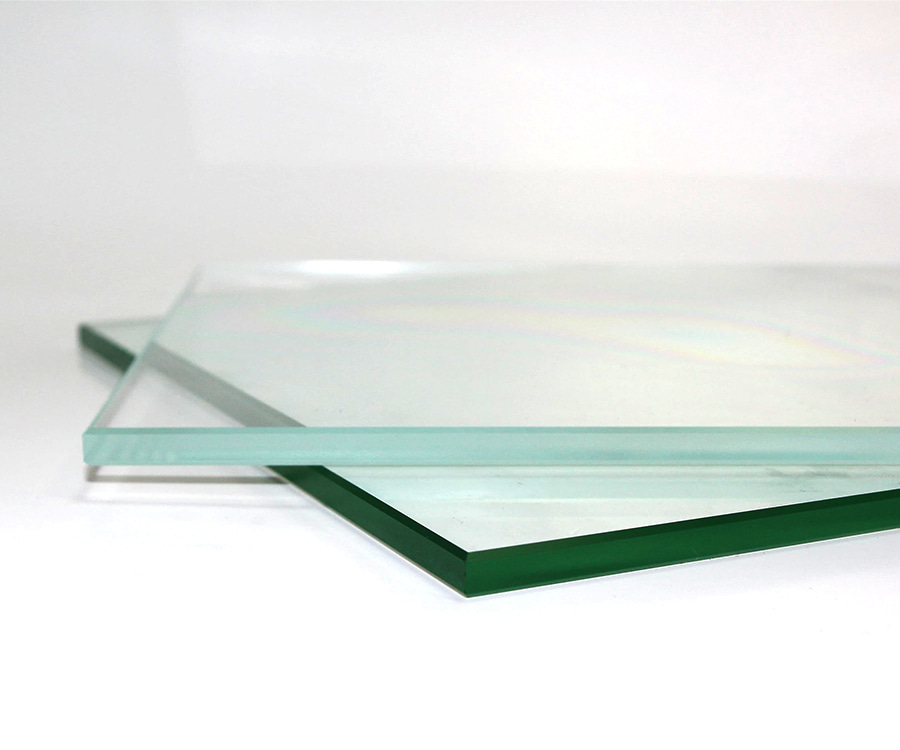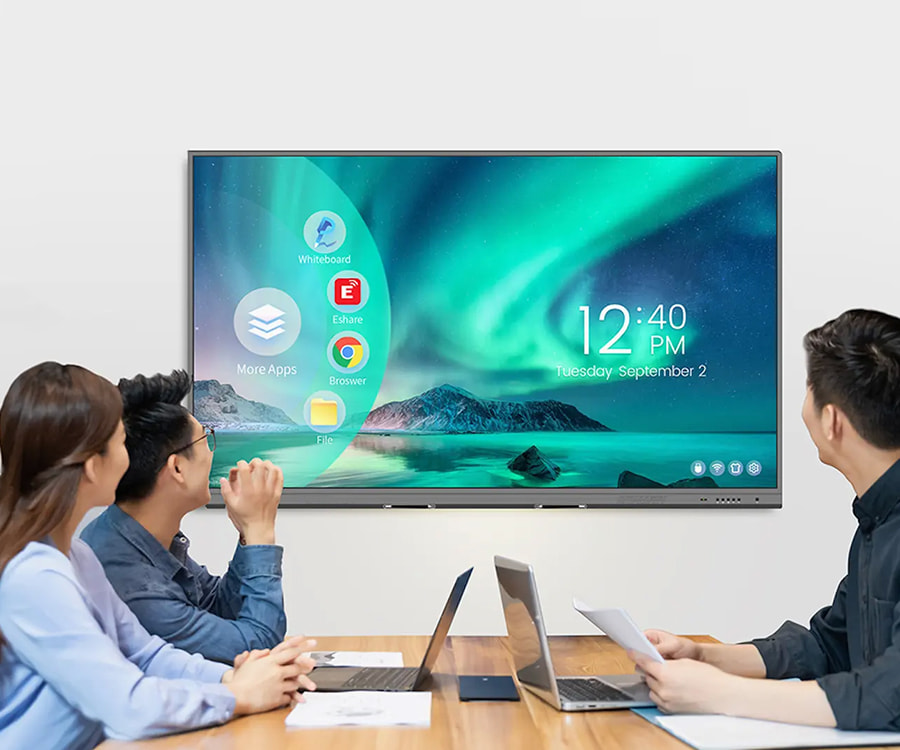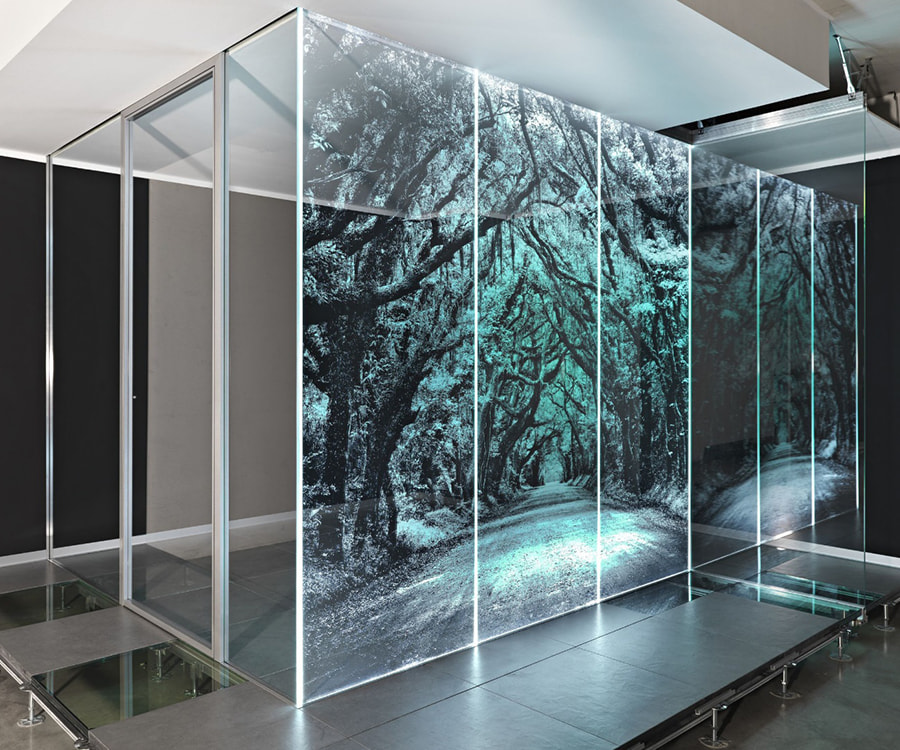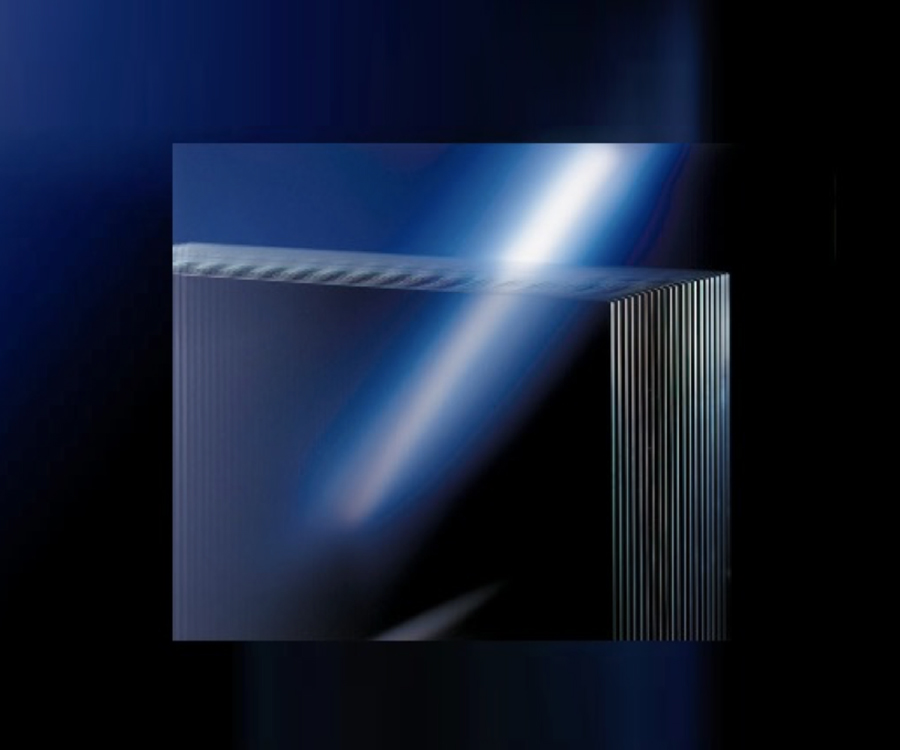The design of anti-reflective films is based on optical principles, especially the thin film interference effect. By coating one or more layers of thin film materials with specific refractive index and thickness on the surface of the Photovoltaic Module Cover Glass, the reflection and transmission behavior of light at the film-air and film-glass interfaces can be adjusted. These films can cause destructive interference between reflected light and transmitted light, thereby reducing the intensity of reflected light within a specific wavelength range and increasing the proportion of transmitted light.
Modern anti-reflective films usually adopt a multi-layer design, and the refractive index and thickness of each layer of film are accurately calculated to achieve the best anti-reflection effect. The multi-layer structure can be optimized for multiple wavelength ranges at the same time to improve the overall transmittance. Excellent anti-reflective films can maintain high transmittance in a wide wavelength range (such as 380~1100nm), covering most of the solar spectrum from ultraviolet to near infrared, ensuring that as many photons as possible are absorbed by solar cells. Anti-reflective films must also have good environmental adaptability, be able to withstand the influence of harsh conditions such as high temperature, high humidity, and ultraviolet rays, and maintain long-term stable anti-reflection performance.
Since the anti-reflection film significantly improves the light transmittance of the cover glass of the photovoltaic module, more sunlight can penetrate the cover glass and shine on the solar panel. Solar cells convert photons into electrons through the photoelectric effect, thereby generating electrical energy. Therefore, the increase in light transmittance directly leads to an increase in the number of photons received by the photovoltaic module, thereby improving the photoelectric conversion efficiency and ultimately improving the power generation efficiency. It is estimated that under ideal conditions, the anti-reflection film can increase the power generation efficiency of photovoltaic modules by about 10% or more.
As the second layer of protective barrier for the cover glass, the main function of the weather-resistant film is to resist the erosion of the cover glass by external environmental factors. These environmental factors include ultraviolet radiation, rain erosion, wind and sand erosion, and extreme temperature changes. Ultraviolet radiation is one of the main factors that cause the aging of the cover glass. It will cause microcracks on the glass surface and reduce the light transmittance; while rain, wind and sand may carry pollutants attached to the glass surface and affect the light transmission performance.
Weather-resistant film can effectively isolate the damage of harmful rays such as ultraviolet rays to the cover glass, slow down its aging process, and thus extend the service life of photovoltaic modules. Some high-end weather-resistant films also have a self-cleaning function, which can automatically remove dust and dirt attached to the glass surface by rain or solar thermal effect, maintaining its cleanliness and light transmission performance. Weather-resistant films can also resist the influence of thermal stress caused by temperature changes on the cover glass to a certain extent, maintaining its mechanical strength and flatness.
The application of weather-resistant films not only improves the durability and power generation efficiency stability of photovoltaic modules, but also reduces the maintenance cost and replacement frequency caused by environmental factors. This is of great significance to the long-term operation and economic benefits of photovoltaic power stations. At the same time, it is also in line with the concept of sustainable development and helps to reduce resource waste and environmental pollution.


